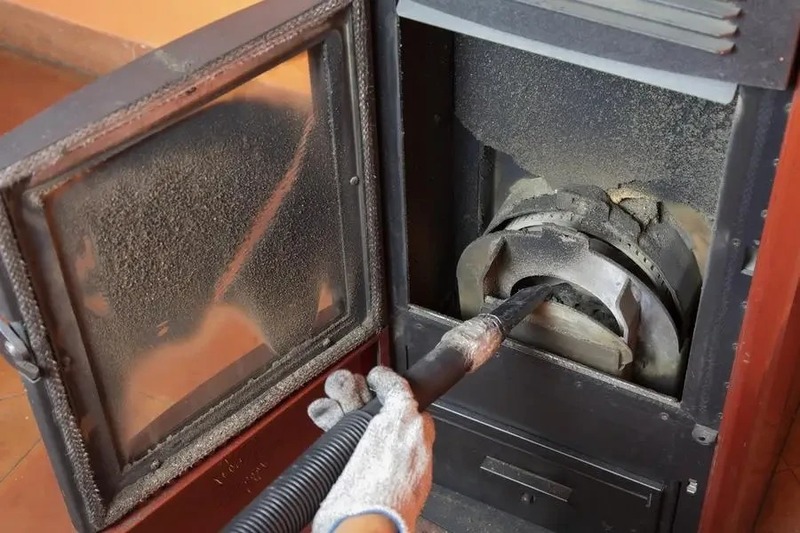The Role of Housing Disrepair Solicitors: Why You Need Legal Help to Win Your Claim
3
0
·
2025/08/18
·
5 mins read
☕
WriterShelf™ is a unique multiple pen name blogging and forum platform. Protect relationships and your privacy. Take your writing in new directions. ** Join WriterShelf**
WriterShelf™ is an open writing platform. The views, information and opinions in this article are those of the author.
Article info
Total: 1103 words
Like
or Dislike
More from this author
More to explore










If you’re living in poor housing conditions — dealing with damp, mould, leaks, or a broken heating system — you may already know you have the right to make a housing disrepair claim. But knowing your rights and successfully claiming the housing disrepair compensation you deserve are two very different things.
That’s where housing disrepair solicitors come in.
At Housing Disrepair Claims, we work with some of the best housing disrepair solicitors in the UK. Our expert team ensures that tenants are not only taken seriously but also compensated fairly for the suffering caused by their landlords’ negligence.
In this article, we’ll explain exactly what solicitors do in a housing disrepair case, why their involvement can make the difference between success and failure, and how our housing disrepair experts can help you win.
What Do Housing Disrepair Solicitors Do?
Solicitors who specialise in housing disrepair law are trained to handle claims against landlords. Their role is to:
Assess Your Case
Review the evidence you’ve collected.
Determine whether your landlord has breached their legal obligations.
Estimate the potential value of your claim.
Gather Additional Evidence
Arrange for independent surveyors to inspect the property.
Collect medical records if your health has been affected.
Compile financial evidence for damaged belongings or higher bills.
Communicate With Your Landlord
Formally notify your landlord of the claim.
Apply legal pressure to ensure they take the case seriously.
Handle all correspondence, reducing stress for you.
Negotiate Settlements
Calculate a fair compensation amount.
Negotiate with your landlord’s legal representatives.
Protect you from being pressured into accepting too little.
Take Legal Action if Necessary
File court proceedings if your landlord refuses to settle.
Represent you in court, ensuring your case is presented professionally.
Why Legal Representation is So Important
Some tenants try to handle housing disrepair claims themselves — but this often leads to poor results. Here’s why using expert solicitors matters:
1. Landlords Have Lawyers Too
Most landlords, especially housing associations and councils, have access to their own legal teams. Going up against them alone puts tenants at a serious disadvantage.
2. Compensation Calculations Are Complex
A solicitor knows how to maximise your claim. They’ll include:
General damages (loss of enjoyment).
Special damages (financial losses).
Personal injury claims (health problems caused by disrepair).
Without legal help, tenants often miss out on thousands of pounds.
3. Evidence Must Be Strong
Solicitors know what kind of evidence courts require. They’ll arrange expert reports and ensure everything is properly documented.
4. Claims Can Be Challenged
Landlords may argue that:
The damage was your fault.
They weren’t informed of the problem.
Repairs were carried out reasonably.
Housing disrepair solicitors are trained to counter these arguments with solid evidence and legal arguments.
5. No Win, No Fee Protection
With firms like Housing Disrepair Claims, you don’t need to worry about legal fees. Our solicitors work on a no win, no fee basis, meaning you only pay if your claim succeeds.
How Solicitors Maximise Compensation
The difference between claiming alone and claiming with a solicitor can be huge. Here’s how solicitors increase the value of your claim:
Accurate Damage Assessment: Solicitors ensure all issues are included, from damp and mould to broken heating and beyond.
Health Impacts: They obtain GP or hospital records linking health problems to disrepair.
Financial Losses: They calculate replacement costs for damaged belongings, increased bills, or loss of earnings.
Future Risk: They may argue for higher payouts if disrepair has caused long-term harm.
For example, a tenant claiming alone for damp and mould might secure £1,000. With the help of expert housing disrepair solicitors, the same claim might result in £5,000 or more — because health, financial, and inconvenience damages are properly included.
The Process: Working With Housing Disrepair Solicitors
Here’s what happens when you work with Housing Disrepair Claims and our legal team:
Step 1: Free Case Review
We assess whether you’re eligible to make a housing disrepair claim. This includes reviewing your evidence and landlord history.
Step 2: Evidence Gathering
Our housing disrepair experts help collect additional proof, including photos, medical records, and surveyor inspections.
Step 3: Formal Claim Submission
Your solicitor notifies the landlord and begins negotiations.
Step 4: Settlement or Court Action
If the landlord agrees to settle, you’ll receive compensation and confirmation of repairs.
If not, your solicitor will take the case to court, fighting for your rights.
Step 5: Compensation Award
Once the case is resolved, you receive your housing disrepair compensation claim payment — with no hidden fees thanks to our transparent process.
Choosing the Best Housing Disrepair Solicitors
Not all legal firms specialise in housing disrepair. Choosing the wrong one could delay your case or reduce your payout.
When choosing solicitors, look for:
Proven experience in housing disrepair law.
Independent surveyor connections to strengthen evidence.
A no win, no fee guarantee.
Positive tenant reviews showing successful results.
At Housing Disrepair Claims, we partner with some of the best housing disrepair solicitors in the UK. We’ve built a track record of helping tenants secure fair compensation and proper repairs.
Frequently Asked Questions
Q: Do I really need a solicitor to claim compensation?
A: Technically, no — but without one, your chances of success and the amount you can claim are much lower.
Q: How much does it cost?
A: With our no win, no fee agreement, you won’t pay a penny unless your claim succeeds.
Q: How long does the process take?
A: Most cases take a few months, depending on how cooperative your landlord is. Court cases may take longer, but our solicitors ensure landlords can’t drag things out unnecessarily.
Q: Can I claim against a council or housing association?
A: Yes — many of our cases are against local councils or housing associations, who are still legally responsible for repairs.
Why Work With Housing Disrepair Claims?
When you work with us, you don’t just get solicitors — you get a full team of housing disrepair experts who guide you every step of the way. We offer:
Free initial advice.
A stress-free process.
Maximum compensation calculations.
Repairs arranged alongside your claim.
Our goal is to ensure you live in a safe, comfortable home — and that you’re fairly compensated when landlords fail to deliver.
Final Thoughts
Making a housing disrepair compensation claim can feel overwhelming, but you don’t have to face it alone. With the support of experienced housing disrepair solicitors, you can build a strong case, stand up to your landlord, and secure the payout you deserve.
📞 Contact Housing Disrepair Claims today to speak with one of our experts and begin your claim.
Housing Disrepair Claims — Powered by the Best Housing Disrepair Solicitors in the UK.